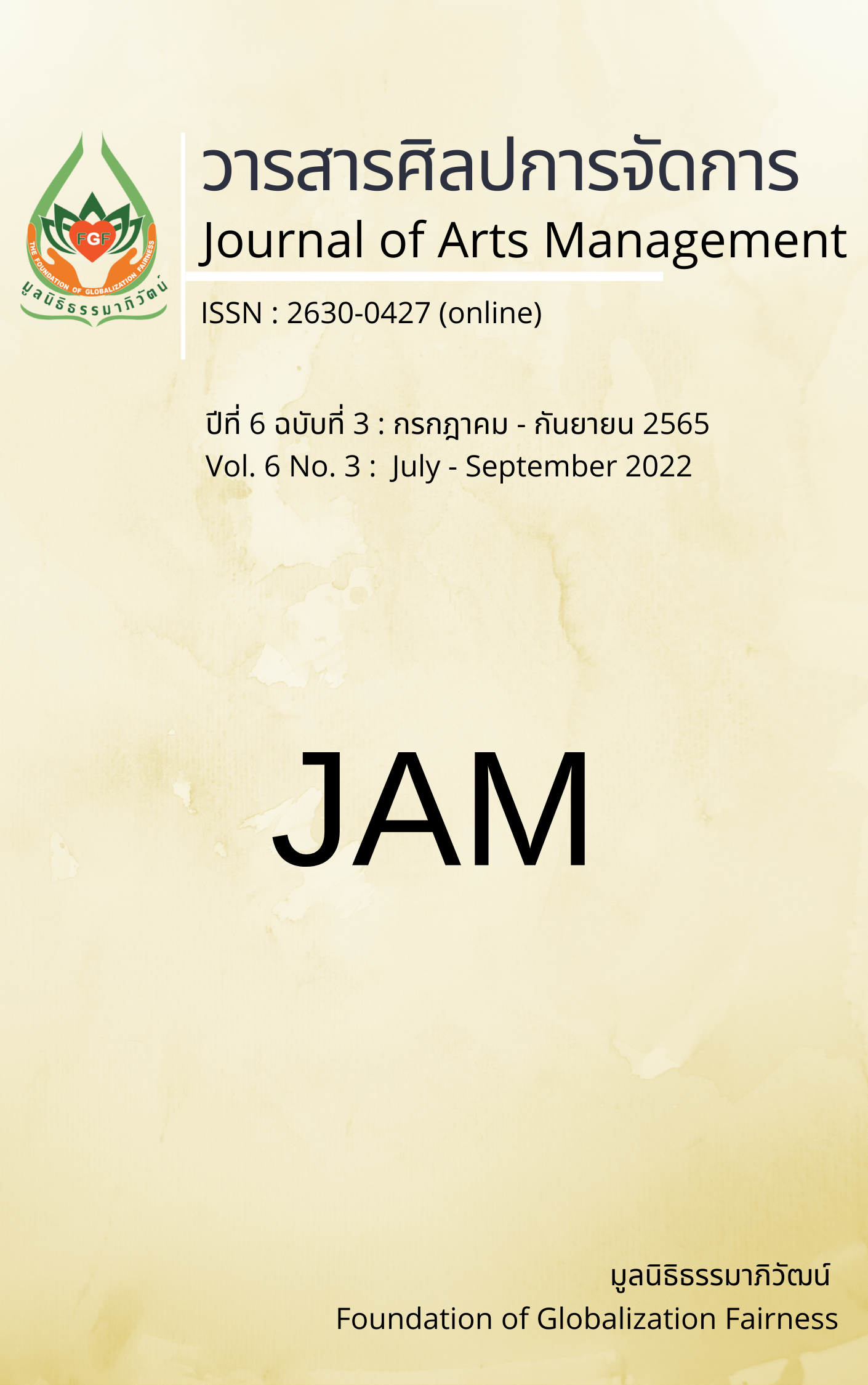Confirmatory Factor Analysis of Enhancing Information Technology Competence in the Performance of Duties of Teachers in Secondary Schools under the office of the Basic Education Commission in the Educational Inspection Region No. 11
Main Article Content
Abstract
This article aimed to study the confirmatory factor analysis of enhancing information technology competence in the performance of duties of teachers in secondary schools under the Office of the Basic Education Commission in the Educational Inspection Region No. 11. This study was quantitative research using the concept of factor analysis as a research framework. The research area was a secondary school under the Office of the Basic Education Commission in the Educational Inspection Region No. 11. The sample consisted of 385 teachers using multi-stage sampling. One research tool was a questionnaire on the current state of information technology competence in the performance of duties of teachers in secondary schools under the Office of the Basic Education Commission in the Educational Inspection Region No. 11. The data were then analyzed using the AMOS 24.0 program.
The research results could be summarized as follows: The model was consistent with the empirical data. Considering that Chi-square = 5.79 and df = 4, the probability was 0.221, indicating that the Chi-square was not significantly different from zero. The goodness of fit index (GFI) was 1.0 and the adjusted goodness of fit index (AGFI) was 0.99. The factor loading as a standard score of the variables could be observed in the information technology competency model of teachers in secondary schools. All were positive at 0.34 to 0.87 and were statistically significant at the .05 level. The variables with factor loading, ranked highest to lowest, were psychomotor domain, affective domain, and cognitive domain. The variables with factor loading, ranked highest to lowest, were psychomotor domain, affective domain, and cognitive domain. In terms of skills (S), teachers were strongly required to have skills or abilities.
Article Details

This work is licensed under a Creative Commons Attribution-NonCommercial-NoDerivatives 4.0 International License.
Views and opinions appearing in articles in the Journal of Arts of Management It is the responsibility of the author of the article. and does not constitute the view and responsibility of the editorial team I agree that the article is copyright of the Arts and Management Journal.
References
Bangmo, S. (2013). Organization and management. Wittayapat.
Damnoen, P. S., Phumphongkhochasorn, P., Pornpitchanarong, S., & Nanposri, N. (2022). Development of strategies for the use of innovative information in education for secondary schools under the office of the basic education commission in the Eastern region. International Journal of Early Childhood Special Education, 14(1), 2097-2103.
Hair, J., Black, W., Babin, B., & Anderson, R. (2010). Multivariate data analysis a global perspective. Hamilton Printing.
Kidanun, M. K. (2005). ICT for education. Aroon Publishing.
Ministry of Education. (2009). Basic education core curriculum B. E. 2551. Agricultural Cooperative Association of Thailand Printing.
Ministry of Education. (2011). Information and communication technology master plan for education, Ministry of Education B.E. 2554 – 2556. Office of the Permanent Secretary, Ministry of Education.
Ministry of Information and Communication Technology. (2019). Information and communication technology master plan (version 2) of Thailand B. E. 2552-2556. Ministry of Information and Communication Technology
Office of the Basic Education Commission. (2015). Teacher competency assessment manual. Office of the Basic Education Commission.
Office of the Secretariat of the Teachers Council of Thailand. (2019). Operation manual for renewal of educational vocational license. Office of the Teachers Council of Thailand Secretariat.
Pakotang, J. (2018). Leadership in the digital age for professional educational institute administrators. Siritham Offset.
Pengsawat, W. (2008). Research methods. Suwiriyasan
Phumphongkhochasorn, P., Damnoen, P. S., Suwannaprateep, T., & Phoomparmarn, U. (2021). National Educational standards and the improvement of Thai education system with world class. Asia Pacific Journal of Religions and Cultures, 5(1), 75–86.
Ponkum, D., Na Ayudhaya, W. I., & Thongthew, S. (2013). Research and development of public mind enhancement curriculum based on social meliorism theory for elementary school students. Silpakorn Educational Research Journal, 5(2), 321-334.
Secretariat Office of The Teachers’ Council of Thailand. (2019). Annual report 2019. Secretariat Office of The Teachers’ Council of Thailand.
Thongkong, M., Tanveenukool, S., Chaikultawintro, S., & Tewasade, J. (2020). Learning achievement by using computer assisted instruction (CAI). Santapol College Academic Journal, 6(1), 180-189.


